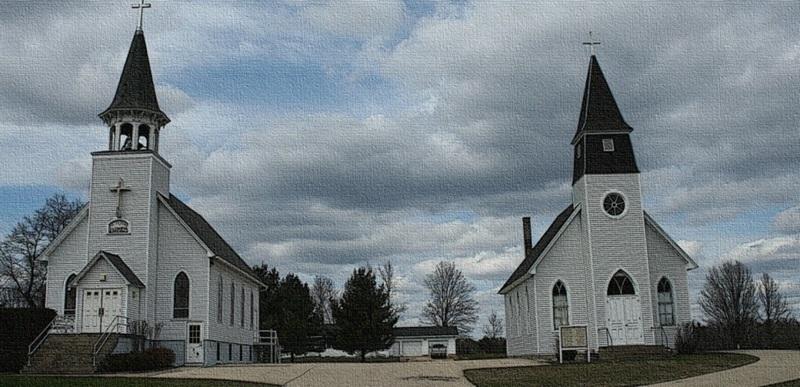Diaconal Ministry and Parachurch Involvement
Diaconal Ministry and Parachurch Involvement

Recently, a deacon from an OP congregation wrote to me, asking whether we should support parachurch ministries. This is not an easy question to answer.
Sphere Sovereignty⤒🔗
In framing our response, we must first define ministry. What is it, biblically speaking, that the church is assigned to do? Many years ago, I was taught the concept of sphere sovereignty. According to this concept, God has assigned different spheres or areas of concern to the institutions of the family, church, and state. Each sphere and its responsibilities are set forth in the Bible. Each institution, when working in the area of its divine assignment, is sovereign insofar as it answers directly to God. The other institutions are not assigned to operate in its area, and they violate God's order if they do so.
On the other hand, when an institution assigned to a particular sphere (e.g., the church) operates in the sphere assigned to another one (e.g., the state), it is subject to the lordship (under Christ, of course) of the second institution. For example, when the church builds a building, it is responsible to provide properly for public safety, as regulated by the state.
While it is evident in the Bible that the spheres and institutions exist, specific tasks are not expressly assigned to each sphere. Obviously, this lack of specific designation provides fertile ground for discussion and debate. Despite the difficulty of the task, it is a fruitful endeavor that provides instruction for our life in Christ. In many issues (such as the diaconate), the Old Testament law is very suggestive and instructive for us.
Over the years, I have found that the Bible does fit into this scheme. I am also convinced that the Westminster Confession of Faith suggests this scheme insofar as it conforms to the Bible. It is set forth in Paul Woolley's booklet The Family, State and Church, God's Institutions and in my little book Are Five Points Enough? The Ten Points of Calvinism.
Valid Parachurch Tasks←⤒🔗
A parachurch organization is not part of the church or under its authority. Are there any valid parachurch tasks? It seems to me that the Bible presents diaconal work primarily as a church-oriented task. As I try to show in my book Who Will Lead Us? the Old Testament prophets and the ministry of Jesus, which conforms to their prophecies, present the church's ministry as a single ministry of teaching (and praying) and caring for the physical needs of church members. Hence, in Acts 6 there was originally one ministry, in keeping with the ministry of Jesus. That one ministry became too much for the apostles to fulfill, so, under the leading of the Holy Spirit, additional help was gained by establishing the diaconate.
The diaconate was, and continues to be, a part of the ministry of the church. It is a ministry to covenant members, just as it was in the case of Jesus' earthly ministry. So, the diaconal offerings in the Bible were raised for, sent for, and presumably distributed to, the Christians in Jerusalem gripped by famine. I would also grant that the New Testament does not limit diaconal ministries to covenant members (neither does the Old Testament).

Now, the church is limited by the Bible to certain tasks, or ministries. It seems to me that this limitation necessitates parachurch work. For example, Christians are called to be responsible citizens, but I also think the Bible forbids the church to seek to control the state. The church should not be, and should not function as, a political party or organization. Christians should so function both individually and corporately. In the area of meeting some of the many diaconal needs arising in our culture that are not within the sphere of the church, parachurch organizations (which are not part of the church or under its authority) are valid.
The person who wrote to me lists several organizations that I believe are valid and which address tasks that, are outside the church's area of responsibility: adoption services, building housing for the poor, providing shelter for the noncovenantal homeless, pregnancy counseling for the noncovenantal, providing medical and dental care.
One may debate which particular tasks should be assigned to the church or the family or the state, but I trust we would all agree that the church is not appointed by God to assume all the jobs of the family and the state. It seems to me that it is the responsibility of the family (or several families banded together), not of the church, to provide housing, while the state is responsible to see to public safety in building. I do not think the church is to be an adoption agency, yet there is a job that needs to be addressed by believers. Hence, I believe a Christian adoption agency is a proper parachurch ministry.
Oversight←⤒🔗
But what about the oversight of parachurch ministries? This is a difficult issue because we Reformed people are a minority in today's church and because parachurch groups seek to function in a Christian manner as they witness, counsel, teach, etc. Because we are a minority, we often find ourselves working in an organization that is doing a valid task, hut preaching and teaching what is at best inadequate. How do we exercise needed discipline? This is a very hard question. Perhaps we might be the teacher. Perhaps we might see the theological issues as minimal. Perhaps we might be compelled not to participate in a work because it places us in a cooperative ministry with Arminians, Roman Catholics, or others whom we believe do not clearly preach the gospel. The decision is often difficult to make.

Add new comment